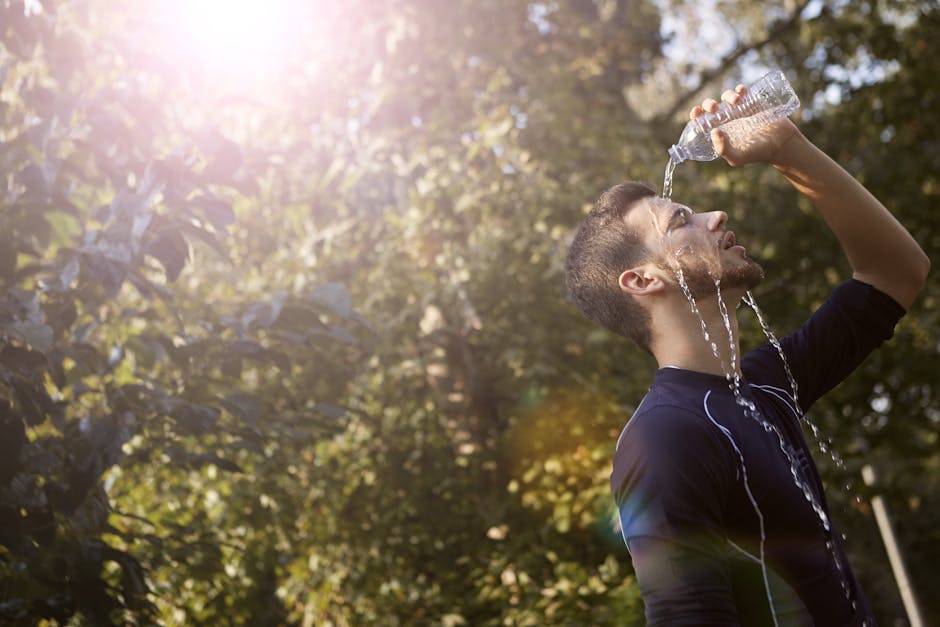Summer Penis: Understanding Changes and Maintaining Healthy Male Genitals in Hot Weather
The summer months bring sunshine, outdoor activities, and…potential changes to your penis. While not a medical condition in itself, the term “summer penis” informally refers to the noticeable alterations in size and appearance that some men experience during hot weather. Understanding these changes and how to maintain healthy genital hygiene is crucial for comfort and well-being.
What Causes Apparent Summer Penis Changes?
Several factors contribute to the perceived differences in penile appearance during summer:
- Temperature: Heat causes vasodilation, meaning the blood vessels expand. This increased blood flow can lead to a temporary increase in size, making the penis appear slightly larger and more engorged.
- Hydration: Dehydration can affect blood volume, potentially impacting penile size. Staying well-hydrated is essential for overall health and may contribute to maintaining a consistent appearance.
- Clothing: Tight-fitting clothing can restrict blood flow and contribute to discomfort. Loose-fitting, breathable clothing is recommended, especially during hot weather.
- Activity Level: Increased physical activity can influence blood flow and cause temporary changes in size.
- Psychological Factors: While less directly linked, stress and anxiety can affect blood flow throughout the body, potentially impacting the appearance of the penis.
Is a Larger Summer Penis a Cause for Concern?
Generally, temporary size fluctuations related to heat are not a cause for medical concern. It’s a normal physiological response. However, if you experience persistent changes, pain, swelling, or discoloration, it’s essential to consult a doctor. These symptoms could indicate an underlying health issue requiring medical attention.
Maintaining Genital Hygiene in Summer
Maintaining good genital hygiene is crucial year-round, but it becomes even more important during the hotter summer months. Sweat and moisture can create an ideal environment for bacterial growth, leading to infections. Follow these tips to promote healthy genital hygiene:
- Regular Cleaning: Gently wash your penis with warm water and mild soap daily, ensuring to thoroughly clean the shaft and head (glans). Avoid harsh soaps or scented products, as these can irritate sensitive skin.
- Proper Drying: After washing, thoroughly dry your penis to prevent moisture buildup. Gently pat the area dry with a clean towel.
- Loose Clothing: Wear loose-fitting, breathable underwear and clothing, especially in hot and humid conditions. Avoid tight clothing that can trap sweat and moisture.
- Hydration: Drink plenty of water to stay hydrated. Dehydration can affect various bodily functions, including blood flow.
- Sun Protection: While less common, prolonged sun exposure can affect the skin on the penis. Consider applying a sunscreen with a high SPF if the area is exposed to direct sunlight for extended periods. This is especially important for those with fairer skin.
- Avoid Harsh Chemicals: Avoid using harsh chemicals or scented products on your genitals. These can disrupt the natural balance of the skin’s flora and lead to irritation and infections.
- Circumcision Considerations: For uncircumcised men, it is crucial to gently retract the foreskin during cleaning to ensure thorough cleansing under the foreskin. Avoid forceful retraction, as this can cause damage.
Addressing Potential Problems
While temporary size changes due to heat are often harmless, some conditions can mimic the effects of “summer penis” and require medical attention. These include:
- Priapism: A persistent, painful erection lasting more than four hours. This is a medical emergency and requires immediate treatment.
- Balanitis: Inflammation of the glans penis, often accompanied by redness, swelling, and pain. This can be caused by infections or irritants.
- Phimosis: Tightening of the foreskin, making it difficult to retract. This can lead to infections if not addressed.
- Paraphimosis: Inability to return the retracted foreskin to its normal position. This can be a medical emergency, potentially causing tissue damage.
When to See a Doctor
Consult a doctor if you experience any of the following:
- Persistent pain or discomfort in the penis
- Swelling or redness of the penis
- Discharge from the penis
- Sores or lesions on the penis
- Changes in penile size or appearance that persist for an extended period
- Difficulty urinating
- Persistent, painful erection (priapism)
Conclusion
The term “summer penis” often refers to normal physiological changes in penile appearance during hot weather. While minor size fluctuations are typically harmless, maintaining good genital hygiene is crucial for preventing infections and discomfort. If you experience any concerning symptoms, seek medical attention promptly. Proper hygiene and awareness of potential problems can contribute to overall penile health and well-being throughout the year.
This information is for general knowledge and should not be considered medical advice. Always consult with a healthcare professional for any health concerns or before making any decisions related to your health or treatment.

